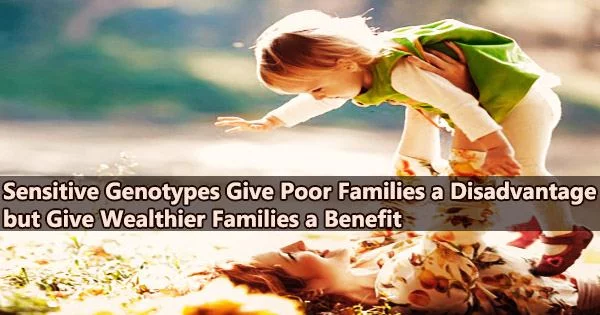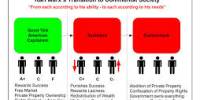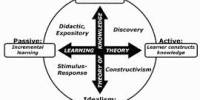According to a recent study by a University of Kansas researcher, the same genotypes produce better or worse economic outcomes compared to one’s sibling, depending on parental wealth.
The findings of the study show that low-income children with sensitive genes will have less financial success than their same-sex sibling without those genotypes. According to Emily Rauscher, an assistant professor of sociology at KU, children with such genotypes from high-income homes would actually do better economically as young adults than their brother or sister.
“People have historically thought of genes as being a key way that parents transmit their advantages and disadvantages to their kids, and this casts some serious doubt on that,” Rauscher said. “It’s not that genes are inherently good or bad. It’s the environment that determines how these genes matter.”
The journal Social Science Research recently published her findings online. Rauscher’s study is the first to combine intergenerational mobility and sensitive genotypes.
She used data from Add Health, a nationally representative sample of U.S. adolescents in grades 7-12 beginning in 1994-95. The sample revisits more than 15,000 youth in subsequent years through 2007-08. Within the sample, she identified 630 siblings to conduct her analysis on economic mobility and genetic sensitivity.
High genetic sensitivity score kids are typically thought to have genotypes linked to behaviors like attention problems, anger, and depression, for example. According to some studies, these genetic variations may affect a person’s likelihood of developing clinical depression, enrolling in college, or committing a crime.
We’re wasting a lot of money on avoidable problems that are created simply because the environment is not good enough for children. Social institutions would function at a better level if we could get rid of all these negative potential effects.
Emily Rauscher
Rauscher said it’s important to note that children with the same sensitive genotypes achieved very different economic outcomes, such as household income, earnings, and education, based on the environmental context their parents’ income provided. One possible explanation for this finding is different responses to the same behaviors.
“A high-energy kid in a wealthy context could be viewed as a go-getter, very engaged or very interested in a topic,” she said. “That same behavior in a poor context could be viewed as negative or worthy of punishment.”
Because Harvard researcher Robert Putnam and others have discovered it is considerably harder now than it was fifty years ago for children of low socioeconomic level to rise up the ladder, the findings are likely essential in studying wealth disparity.
“Now the stakes are higher if you happen to be a family at the lower end of the spectrum,” Rauscher said, “because life is much different than it is for kids at the higher end of the income spectrum.”
Her study also could have wide-ranging policy implications because it seems to bolster the case for a basic minimum income in some fashion, she said.
“We could wipe out all of the negative effects of these genotypes if we raised a family’s income level to the point where these genotypes could be positive around $50,000,” Rauscher said. “We could save a lot of money in the long run if we could give every household with children a minimum basic income where these genotypes start to become beneficial.”
According to her, a basic minimum income might be an investment to prevent future costs from rising because children from low-income households and those who have sensitive genotypes are more likely to grow up in poverty as adults, with all of the costs to society that this entails.
The findings imply that these same kids would likely earn more money if they were reared in higher-earning parents, contributing rather than relying on government money.
“We’re wasting a lot of money on avoidable problems that are created simply because the environment is not good enough for children,” Rauscher said. “Social institutions would function at a better level if we could get rid of all these negative potential effects.”
















